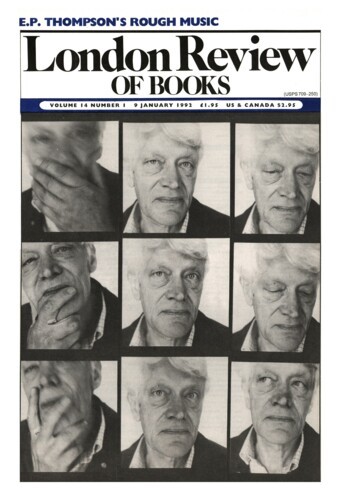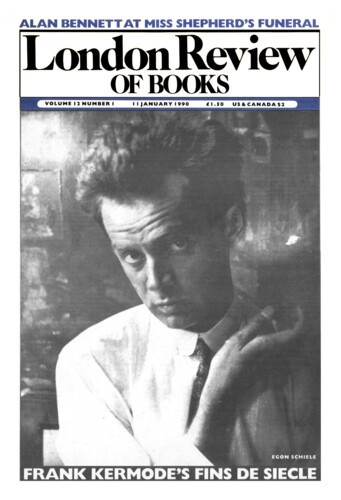Imagining the Suburbs
Stan Smith, 9 January 1992
Whole systems of thought have been founded on the French language’s inability to distinguish differing from deferring. Perhaps Napoleon is to blame (‘Not tonight, Josephine’). In Britain, we do things differently. Whereas Baudelaire’s vrai voyageur preferred travelling joyfully to the letdowns of arrival – in modern terms, couldn’t stop playing with his signifier – Forster’s Mrs Moore remains convinced that there is a real India to make her passage to, Conrad’s Marlow knows there’s a heart of darkness worth all the tourist’s little tribulations. From Wordsworth’s daffodils to Hughes’s brutal snowdrops, objects may flash upon the inward eye of English verse, but they are also carried alive into the heart by passion. Even that vice Anglais, nostalgia, Tennyson’s passion of the past, reinstates the metaphysics of presence, dealing not in absences but in the felt presence of loss: the souvenir snapshots are the real thing. At the end of the longest journey, where Angles do not fear to tread, waits a room with a view, and it’s usually a room of one’s own not far from Howards End. The Englishman’s referent is his castle.’


